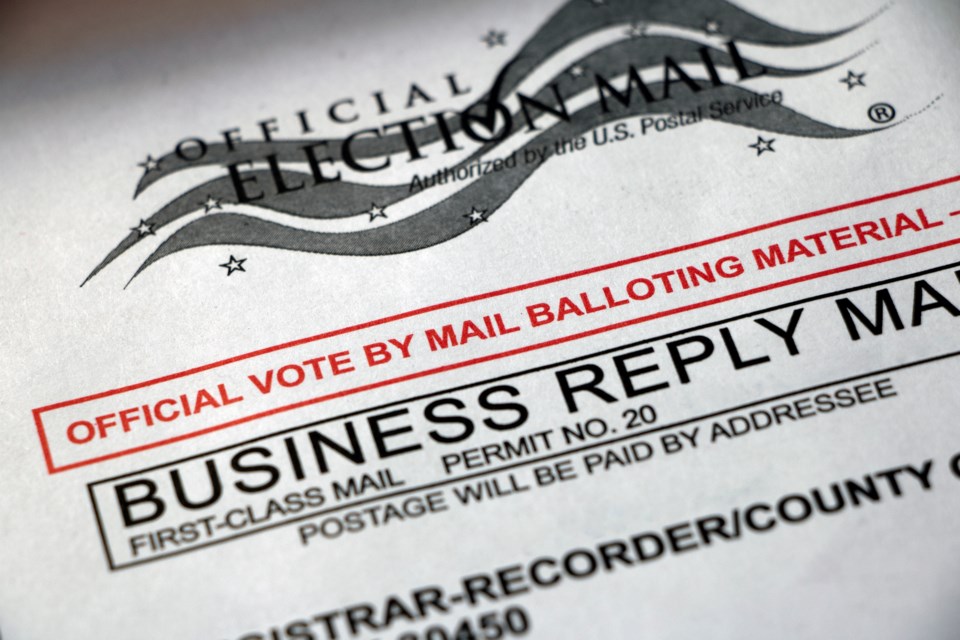Editor's note: This story was originally published by Colorado Newsline. Read the original story here.
***
From reproductive rights and a universal paid leave program to thorny wildlife management issues and complicated property-tax formulas, there’s no shortage of ballot questions that Coloradans are being asked to weigh in on in the 2020 election. In Denver, when combined with local measures, judicial retention elections and more, the result is a six-page, 47-question ballot for voters to complete by Election Day.
This year’s lengthy ballot may feel overwhelming to voters who are also worrying about the presidential race and a pivotal U.S. Senate contest, but it’s nothing new for Colorado — in fact, the 11 statewide ballot questions that voters are facing is only one more than the average of 10 questions they’ve faced in even-year elections since 2000.
And despite several hotly contested, high-stakes campaigns, Colorado’s 2020 ballot fights aren’t forcing advocacy groups and special interests to break the bank. Barring a major surge in fundraising and spending in the election’s final days, state-level issue committees will spend less on ballot campaigns this year than they have in the last three even-year elections, according to data from the Colorado Secretary of State’s Office.
Even in a down year, of course, contesting a ballot question isn’t cheap; for all but one of the measures on Colorado ballots this year, issue committees have raised at least $1 million to spend influencing and turning out voters. Overall, campaigns are on track to spend well over $50 million on 2020 ballot measures — much of it furnished by big corporations, wealthy donors and “dark money” nonprofits.
Colorado’s most expensive 2020 ballot fight is also its most financially competitive. Proposition EE, referred to the ballot by the Legislature in a last-minute deal brokered by Gov. Jared Polis, would create new taxes on vaping products and raise existing tobacco taxes, and is supported by a wide range of health-care groups and liberal donors.
Denver-based philanthropic group Gary Community Investments has donated $1 million to pro-EE campaign A Brighter, Healthier Future for Colorado, with oil heiress Stacy Schusterman contributing $500,000 and Colorado billionaire Pat Stryker contributing $250,000. In all, the pro-EE campaign had raised nearly $4.3 million as of Oct. 14, with an average donation of nearly $50,000. A separate issue committee, the Save the Children Action Network, has also raised $263,750 to support the measure.
The No on EE campaign has raised more than $3.7 million of its own — virtually all of it from Liggett Vector Brands, a group of manufacturers of discount cigarettes who oppose the measure’s establishment of a minimum price of $7 per pack. Liggett has filed a federal lawsuit seeking to block the minimum-price provision, which it alleges unfairly advantages upmarket products sold by tobacco giant Altria, the parent company of Phillip Morris USA. Altria, which spent more than $16 million to oppose a statewide tobacco tax hike in 2016, is sitting out this year’s ballot fights.
Many other 2020 ballot contests are much more financially lopsided, as is often the case, than the battle over Proposition EE. In two other races that are drawing lots of campaign cash, Propositions 115 and 118, one side enjoys a greater than 10-to-1 funding advantage over the other.
Sponsored by prominent Colorado conservatives and anti-abortion groups, Proposition 115 would prohibit abortions after 22 weeks of gestation. Several issue committees supporting the measure have raised less than half a million dollars altogether, while opponents have raised at least $7.4 million to defeat it — the highest total collected by a Colorado issue committee in the 2020 election cycle so far.
More than $2 million of that total has come from Planned Parenthood-affiliated groups, with significant funding also coming from the American Civil Liberties Union and individual donors like Schusterman and Denver philanthropist Merle Chambers.
A wide range of business groups, including Colorado Concern, the Colorado Farm Bureau and the Colorado Construction Industry Coalition, have contributed a total of $675,598 to a committee registered to oppose Proposition 118, according to disclosures.
With roughly $8 million being spent on each of them, Propositions EE, 115 and 118 are the most expensive measures being contested this year. But as Colorado ballot fights go, that’s a relative bargain; even with ever-growing consultant and media-buying fees to contend with, none of the three appears likely to crack the top 10 most expensive statewide measures since 2000. Only two other 2020 ballot questions, Proposition 113 and Amendment B, crack the top 25.
Proposition 113 — a “yes” vote on which would approve Colorado’s entry into the National Popular Vote Interstate Compact — was placed on the ballot following a rare veto-referendum process triggered by conservative groups, who collected more than 200,000 signatures in an effort to overturn a National Popular Vote bill passed by Democrats in the legislature in 2019.
Protect Colorado’s Vote has raised more than $1.6 million to oppose the measure, including $250,000 from Unite for Colorado, a conservative dark-money group. Pro-113 campaign Yes on National Popular Vote has raised $4.4 million, the vast majority of which has come from individual, out-of-state donors, led by California tech investors and philanthropists Josh Jones and Stephen Silberstein.
The campaign in support of Amendment B — which would repeal the Gallagher Amendment, a 1982 constitutional provision that requires Colorado property taxes to adhere to a certain formula — has raised nearly $5 million, much of it from wealthy individual donors, including $1.25 million each from Stryker and former DaVita CEO Kent Thiry.
Keep Property Taxes Low, a committee registered to oppose Amendment B, has raised $282,474, most of which came from conservative group Colorado Rising Action and the Apartment Association of Metro Denver.
Colorado Newsline is part of States Newsroom, a network of news outlets supported by grants and a coalition of donors as a 501c(3) public charity. Colorado Newsline maintains editorial independence. Contact Editor Quentin Young for questions: [email protected]. Follow Colorado Newsline on Facebook and Twitter.



